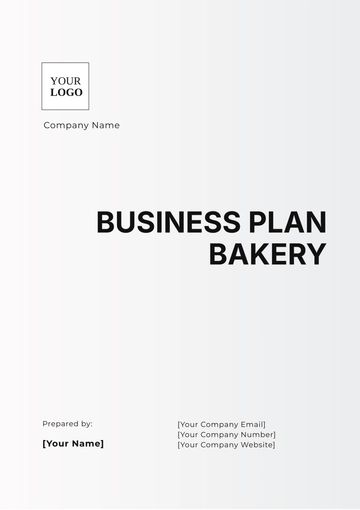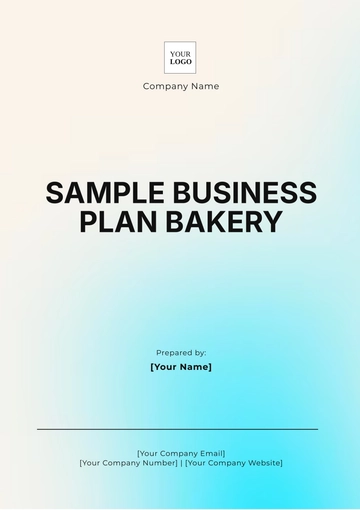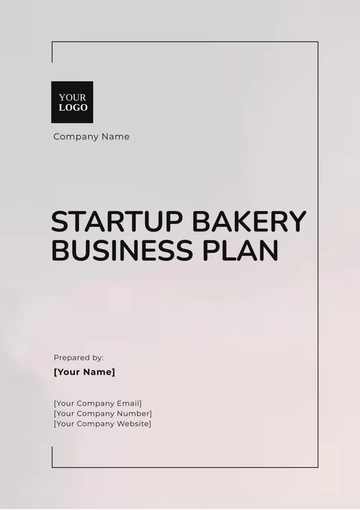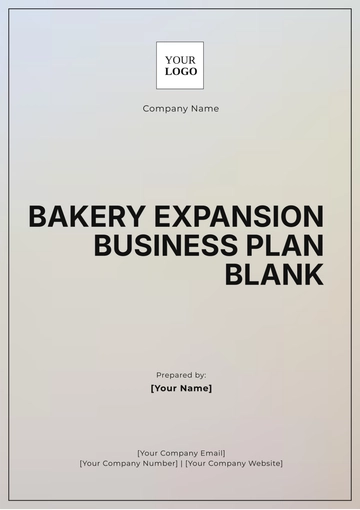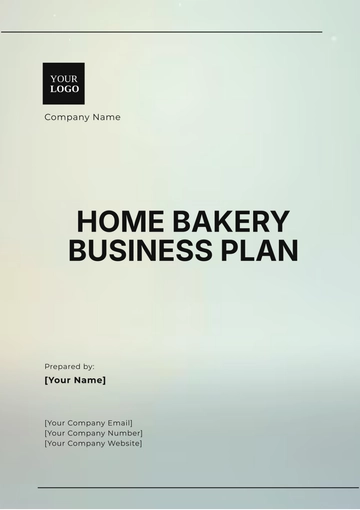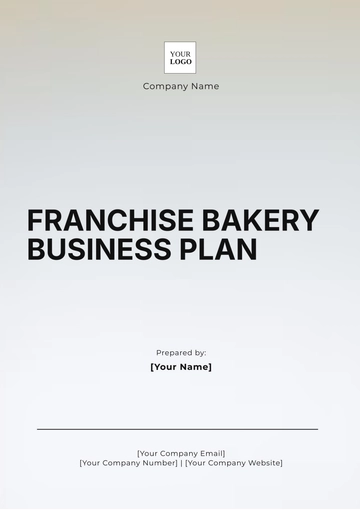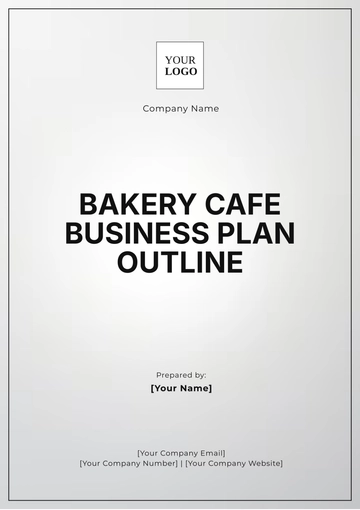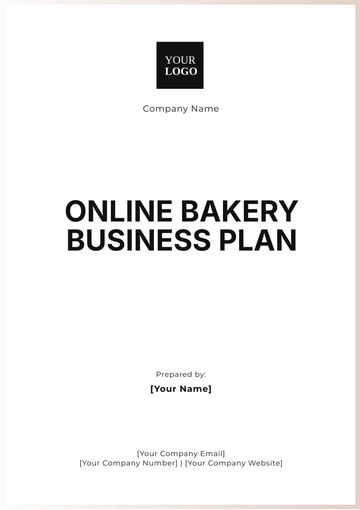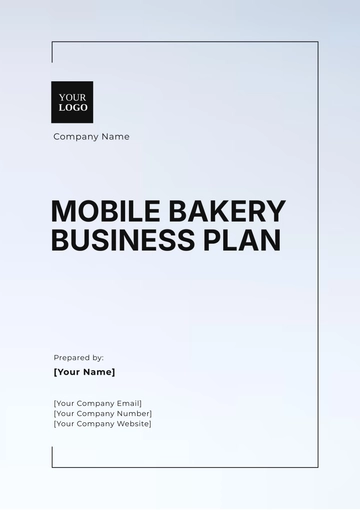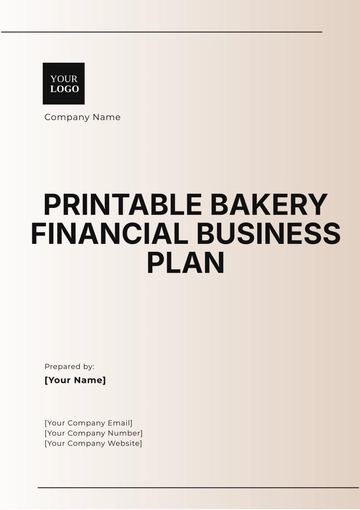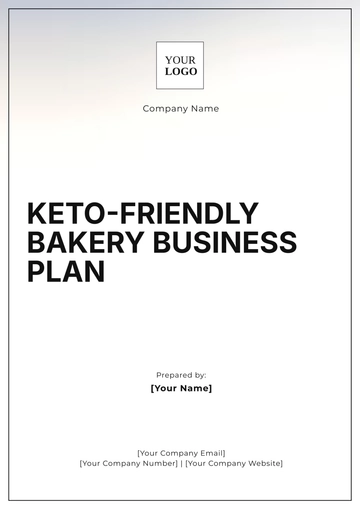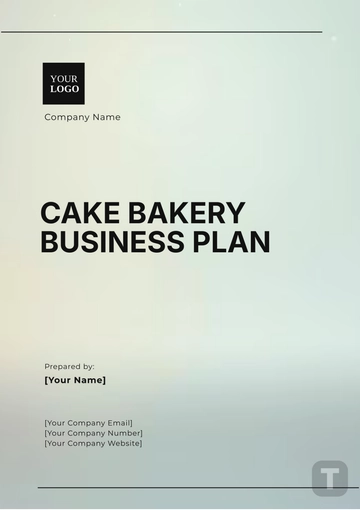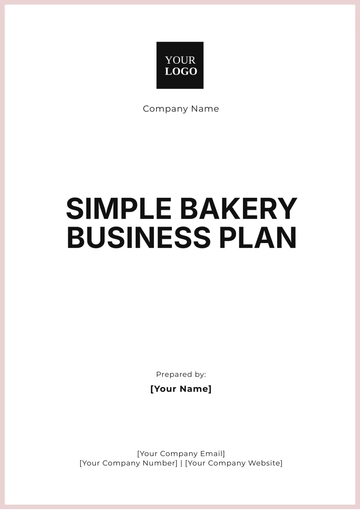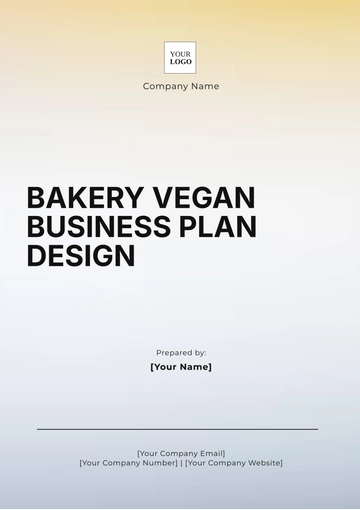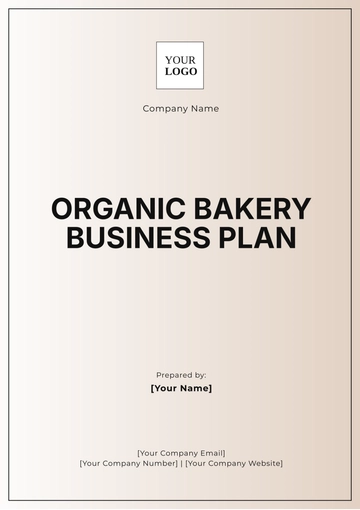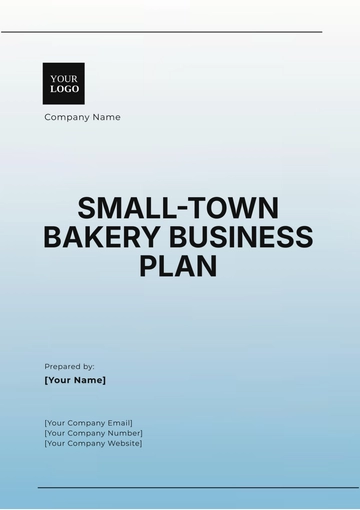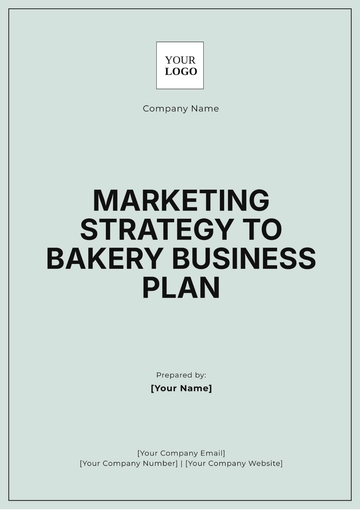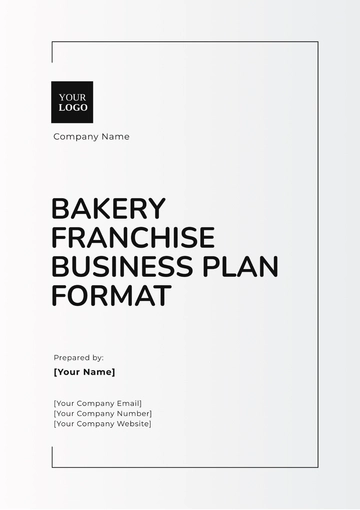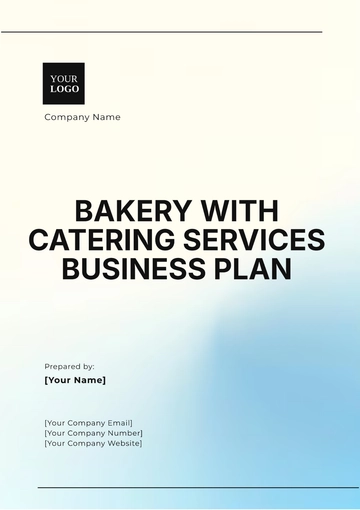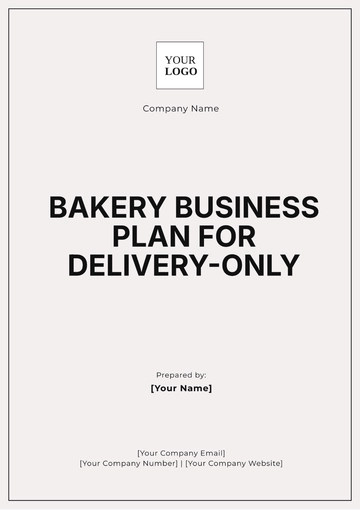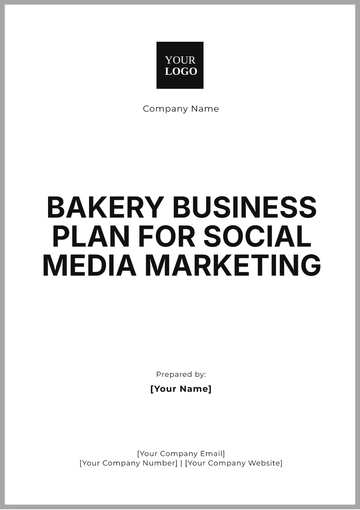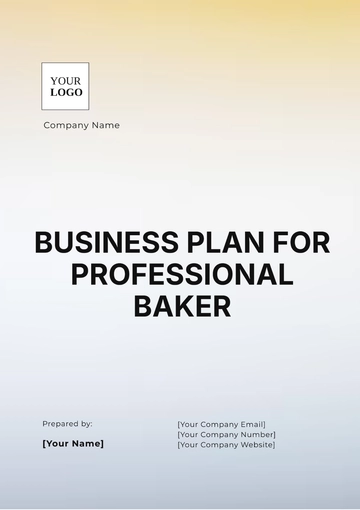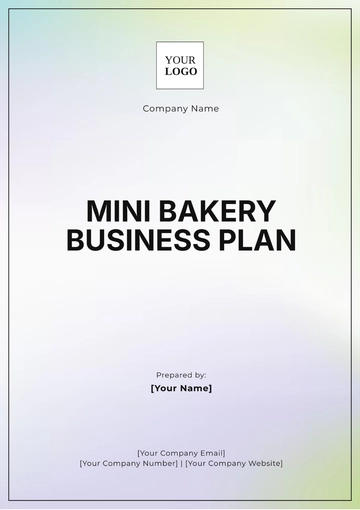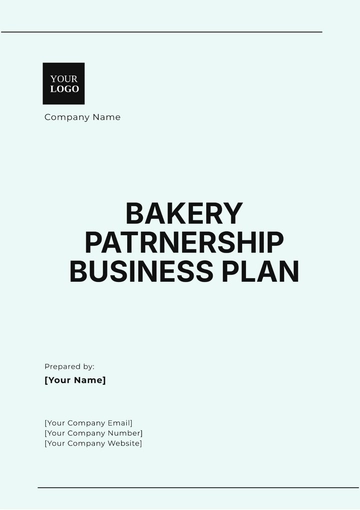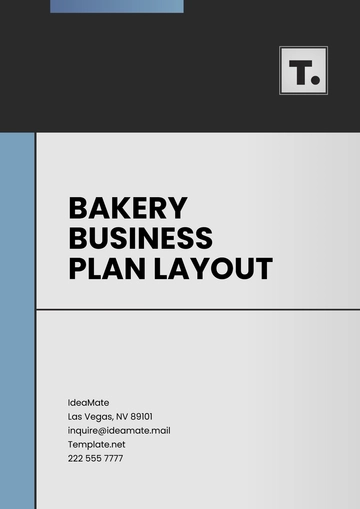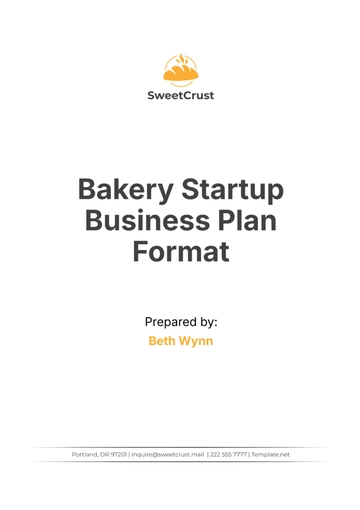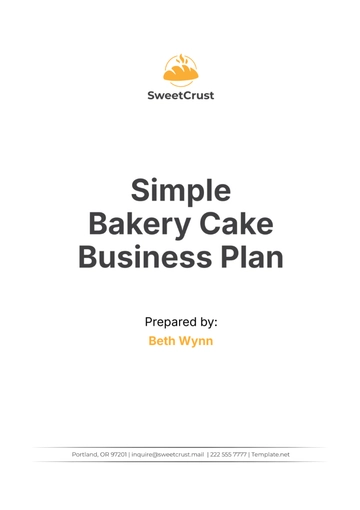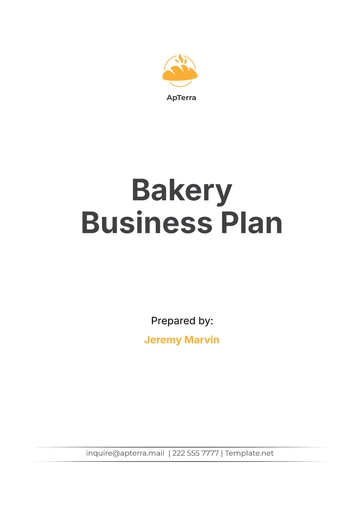Free Franchise Bakery Business Plan
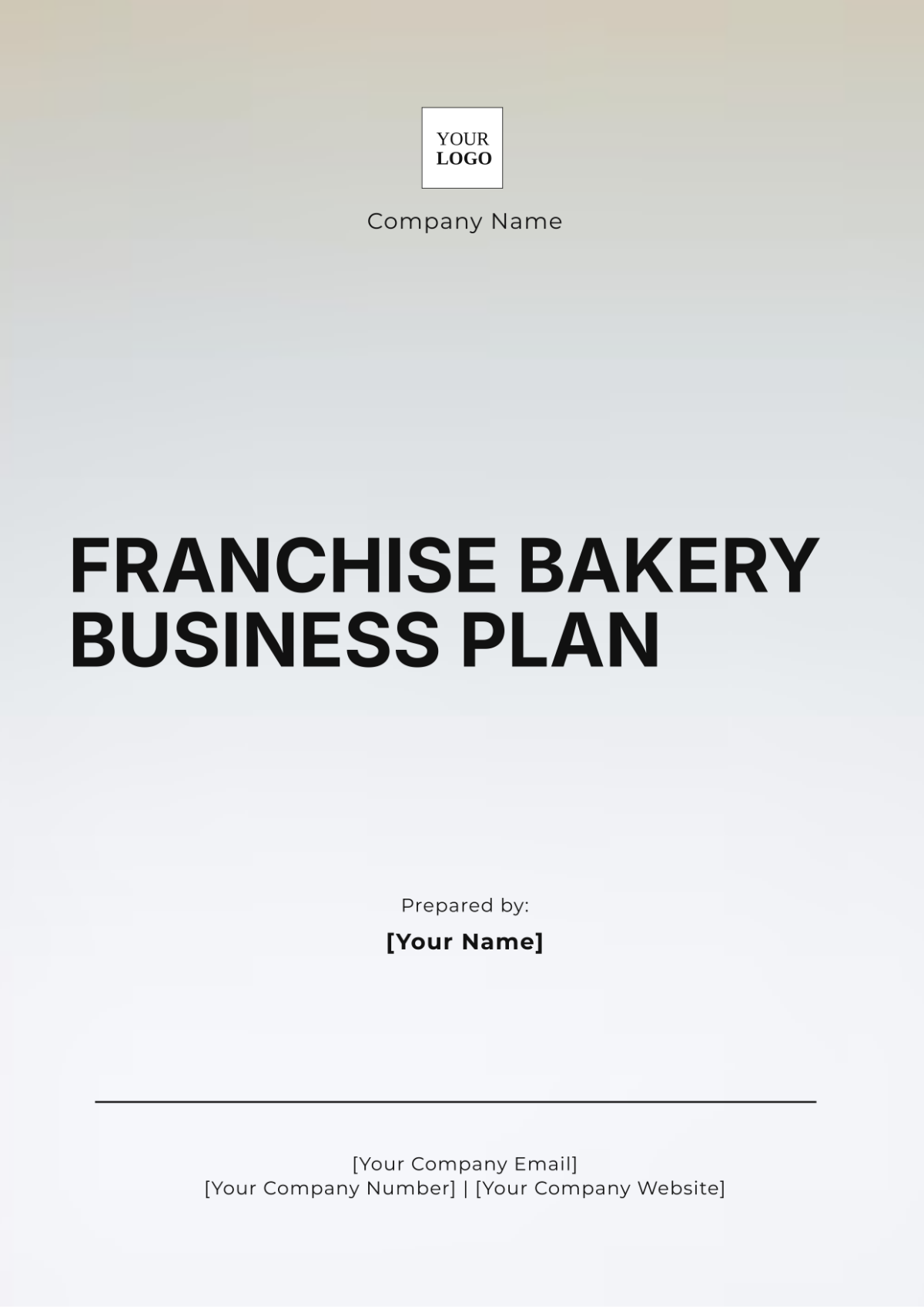
1. Executive Summary
Business Name: Sweet Treats Bakery
Location: 123 Bakery Lane, Springfield, USA
Franchise Owner: Jane Doe
Business Structure: Limited Liability Company (LLC)
Start Date: January 15, 2050
Mission Statement:
At Sweet Treats Bakery, we aim to bring joy to our community through high-quality, handcrafted baked goods made with love and the finest ingredients. Our mission is to create a welcoming space where everyone can enjoy a delicious treat and feel at home.Products and Services:
Sweet Treats Bakery will offer a variety of products, including:Freshly baked cakes, cookies, and pastries
Artisan bread and rolls
Seasonal specialties and custom cakes
Coffee, tea, and other beverages
Target Market:
Our primary audience includes residents aged 25-55, families, and young professionals who appreciate high-quality baked goods and a cozy atmosphere.Financial Overview:
The total startup capital required is $150,000. We project revenues of $250,000 in the first year, with a growth rate of 15% annually, aiming for profitability by the end of Year 2.
2. Business Description
Franchise Background:
Sweet Treats Bakery is a well-established franchise with over 50 locations nationwide. Known for its commitment to quality and customer satisfaction, the franchise provides extensive training and marketing support.Franchise Model:
The franchise model includes initial training, ongoing support, marketing resources, and access to exclusive recipes and supplier contracts.Business Concept:
Sweet Treats Bakery will focus on using locally sourced, organic ingredients wherever possible. Our USP lies in our unique flavors, seasonal offerings, and the ability to customize products for special occasions.
3. Market Research and Analysis
Industry Overview:
The bakery industry is valued at approximately $45 billion in the U.S. and is expected to grow by 3-5% annually. The demand for artisanal and gourmet baked goods is rising as consumers seek higher quality and unique flavors.
Target Market and Customer Demographics:
Age Group: 25-55 years old
Income Level: Middle to upper-middle class ($50,000 - $100,000 annually)
Lifestyle & Preferences: Health-conscious consumers seeking quality ingredients, parents looking for treats for their children, and young professionals wanting a cozy café experience.
Competitive Analysis:
Local competitors include:
ABC Bakery: Known for its traditional baked goods but lacks variety in specialty items.
Café Delight: Offers a wider range of beverages but focuses more on coffee than baked goods.
Sweet Treats Bakery will differentiate itself with its unique offerings and customer experience.
Market Needs:
There is a growing demand for gluten-free and vegan options in the local market, which we plan to address by offering a dedicated range of such products.
4. Marketing Strategy
Branding:
Sweet Treats Bakery will emphasize a warm, inviting brand identity, featuring pastel colors and a whimsical logo. The interior will reflect this theme, creating a cozy atmosphere for customers.
Product Offerings:
Signature Cakes: Chocolate ganache, vanilla bean, and seasonal fruit cakes.
Artisan Bread: Sourdough, whole grain, and specialty rolls.
Custom Orders: Personalized cakes for birthdays, weddings, and events.
Pricing Strategy:
Prices will be competitive, with cakes ranging from $30 to $100, cookies at $2 each, and artisan bread starting at $5. Special promotions will be offered during holidays.
Location and Distribution:
Located in a high-traffic area near a shopping center, Sweet Treats Bakery will also offer online ordering and local delivery services.
Promotion and Advertising:
Social Media: Active engagement on Instagram and Facebook with daily posts and promotions.
Local Advertising: Collaborations with local businesses for cross-promotions, flyer distributions, and participation in community events.
Grand Opening Promotions: A “Buy One, Get One Free” offer on all baked goods during the first week.
5. Operations Plan
Bakery Setup and Design:
The bakery will feature an open kitchen layout, showcasing the baking process. There will be seating for 20 customers, a display case for baked goods, and a coffee bar.
Suppliers:
Local dairy farms for fresh eggs and milk
Organic flour suppliers
Local farmers for seasonal fruits and vegetables
Staffing:
Number of Employees: 6 (1 manager, 2 bakers, 3 customer service staff)
Staff Roles:
Manager: Oversee daily operations and finances
Bakers: Prepare and bake products
Customer Service: Assist customers and handle sales
Training and Development: The franchise will provide initial training, with ongoing workshops scheduled quarterly.
Daily Operations:
Daily tasks include baking schedules, inventory checks, customer service protocols, and cash handling procedures.
6. Management and Organization
Ownership Structure:
Jane Doe will own 100% of the LLC and will be involved in day-to-day operations.
Management Team:
Franchise Owner: Jane Doe
Manager: John Smith (to be hired)
Advisors and Consultants:
Financial Advisor: Maria Johnson
Legal Counsel: Mark Thompson
7. Financial Plan
Startup Costs:
Franchise Fee: $30,000
Equipment Costs: $50,000 (ovens, mixers, display cases, furniture)
Lease/Rent: $36,000 (first year)
Marketing Budget: $10,000
Total Startup Capital Needed: $150,000
Revenue Projections:
Year 1: $250,000
Year 2: $287,500
Year 3: $330,125
Break-even Analysis:
The business is projected to break even by the end of Year 2, with estimated monthly expenses of $15,000.
Funding Requirements:
The owner will invest $50,000 and is seeking a $100,000 small business loan.
8. Risk Analysis
Potential Risks:
Increased competition in the local bakery market
Fluctuations in ingredient prices
Changes in consumer preferences
Risk Mitigation:
Regularly evaluate the competition and adjust marketing strategies accordingly
Establish long-term supplier contracts to stabilize ingredient costs
Introduce new product lines based on market trends and customer feedback.
9. Appendices
Supporting Documents:
Franchise Agreement
Lease Contracts
Supplier Agreements
Marketing Material Prototypes
Financial Statements
- 100% Customizable, free editor
- Access 1 Million+ Templates, photo’s & graphics
- Download or share as a template
- Click and replace photos, graphics, text, backgrounds
- Resize, crop, AI write & more
- Access advanced editor
Expand your bakery into a franchise with Template.net’s fully customizable Franchise Bakery Business Plan Template. This editable template offers a structured format to plan out franchise growth strategies. Editable in our AI Editor Tool, you can easily adjust the content to fit your franchising goals and requirements.
You may also like
- One Page Business Plan
- Coffee Shop Business Plan
- Restaurant Business Plan
- Food Business Plan
- Real Estate Business Plan
- Executive Summary Business Plan
- Cover Page Business Plan
- Nonprofit Business Plan
- Daycare Business Plan
- Construction Business Plan
- Startup Business Plan
- Medical Business Plan
- Bakery Business Plan
- Service Plan
- Hotel Business Plan
- Catering Business Plan
- School Business Plan
- Healthcare Business Plan
- Transportation Plan
- Sports Plan
- Car Wash Business Plan
- Salon Business Plan
- Clothing Business Plan
- Farming Business Plan
- Boutique Plan
